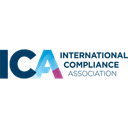This course is part of The Foundations of Financial Crime Prevention.
This comprehensive course focuses on developing effective anti-fraud strategies for organizations. Students learn essential components of fraud prevention, including risk assessment, ethics policies, and control measures. The course covers various fraud types affecting customer accounts, such as deposit fraud, credit application fraud, and mortgage fraud. Participants gain practical knowledge in creating fraud-averse cultures, implementing security controls, and managing organizational risk profiles. Designed for early-career professionals in compliance and risk management, the course provides crucial skills for protecting financial institutions and their stakeholders.
English
English
What you'll learn
Implement comprehensive anti-fraud strategies and ethics policies
Develop effective fraud awareness programs and risk assessments
Distinguish between preventive and detective controls
Implement personnel policies to reduce fraud risks
Establish proper security controls and authorization limits
Create and maintain a fraud-averse organizational culture
Skills you'll gain
This course includes:
PreRecorded video
Graded assignments, exams
Access on Mobile, Tablet, Desktop
Limited Access access
Shareable certificate
Closed caption
Get a Completion Certificate
Share your certificate with prospective employers and your professional network on LinkedIn.
Created by
Provided by

Top companies offer this course to their employees
Top companies provide this course to enhance their employees' skills, ensuring they excel in handling complex projects and drive organizational success.





There are 14 modules in this course
This comprehensive course explores effective strategies for preventing and controlling fraud in financial institutions. The curriculum covers essential elements of anti-fraud programs, including risk assessment, ethics policies, and fraud awareness initiatives. Students learn about various control measures, from preventive to detective controls, and understand the importance of personnel policies and physical security. The course emphasizes creating fraud-averse organizational cultures and protecting customer accounts from various types of fraud, including deposit fraud, credit application fraud, and mortgage fraud.
Fundamental elements of an anti-fraud strategy
Module 1
Common elements of fraud and ethics policy
Module 2
Importance of fraud-awareness programmes
Module 3
Purpose of a risk assessment
Module 4
Elements to be considered when risk profiling an organisation
Module 5
Differentiate between preventive controls and detective controls
Module 6
How effective personnel policies can reduce fraud risks
Module 7
Importance of physical security, access controls and information security procedures
Module 8
Significance of authorisation limits and the segregation of duties
Module 9
What constitutes a fraud-averse culture and why it is important
Module 10
Vulnerability of customer accounts to fraud
Module 11
Different types of fraud that involve customer accounts
Module 12
Deposit fraud, fraudulent credit applications and mortgage fraud
Module 13
How impersonation can be used in banking fraud
Module 14
Fee Structure
Individual course purchase is not available - to enroll in this course with a certificate, you need to purchase the complete Professional Certificate Course. For enrollment and detailed fee structure, visit the following: The Foundations of Financial Crime Prevention
Payment options
Financial Aid
Testimonials
Testimonials and success stories are a testament to the quality of this program and its impact on your career and learning journey. Be the first to help others make an informed decision by sharing your review of the course.
Frequently asked questions
Below are some of the most commonly asked questions about this course. We aim to provide clear and concise answers to help you better understand the course content, structure, and any other relevant information. If you have any additional questions or if your question is not listed here, please don't hesitate to reach out to our support team for further assistance.

